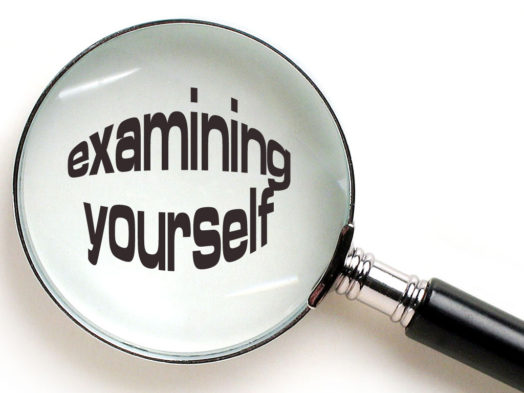We are subjected to all kinds of tests throughout our lifetime. Some are routine, but others are unavoidable, deeply personal tests: peer pressure, emotional suffering, financial upheaval, and temptation. With a fear of failure, we usually don’t consider these as positive experiences. However, with good preparation we can face self-examination confidently.
“Test yourselves to see if you are in the faith; examine yourselves! Or do you not recognize this about yourselves, that Jesus Christ is in you—unless indeed you fail the test?” (2 Corinthians 13:5 NASB).
We often use the examination process before Passover akin to a confessional, listing out the areas where we have failed in the previous year. While putting sin out is a vital part of the process, there is additional, encouraging meaning to derive from self-examination.
The word “examine” in this verse means to look for specific proof, in this case of faith and conviction. But the Greek word upon which it is based carries an additional implication, that of examining with the purpose of approving in mind. It connotes commendation, rather than condemnation. We need to examine ourselves with hopeful optimism about God’s redemptive activity in our lives because He has promised to stick with us and give us the help and faith we need.
We can’t please God from what we generate of ourselves, and as God is the Manager of this process of introspection, He forms our character through His daily efforts. What we need to evaluate the most, is how willingly we are yielding to that process. Is living “the way of God” something we take extremely seriously?
Thankfully, there are markers that help us to see our progress: “We know that we have passed out of death into life, because we love the brethren…,” (1 John 3:14).
Outgoing concern for others is not our natural tendency, but it develops from God’s Spirit at work in each of us as we allow God, in faith, to change how we think. We need to approach self-examination with the foundational motivation of love for each other and love for God.
In addition, inner discernment comes from the working of God’s Holy Spirit: “The Spirit Himself [itself] testifies with our spirit that we are children of God…,” (Romans 8:16).
This is an inner confirmation, a witness, that we are, in fact, in the faith, resulting in a growing sense of peace, confidence, and stability in life. We can’t really, deeply change unless we are convinced that God will accomplish His will in us. Here are some questions to ask ourselves:
- “Does my behavior exemplify what I say I believe?”
- “Does my life really reflect that Christ lives within me? “
- “Is there evidence in my life of growth and change?”
Self-examination is not forced on us by the local pastor, or a competition with others (Galatians 6:4). We are called to do this voluntarily. We don’t stand in line every Spring at the Department of Godly People to take a test and get our license for the year!
The reality is that we should be self-examining every single day. Let’s consider our annual pre-Passover focus on self-examination as a look at whether we have been consistent in daily examination, resulting in a recognizable growth pattern. Having faith in God’s power to forgive and work with us throughout the year.
We need to be encouraged by what God, the Father, and Jesus Christ have already done, and will continue to accomplish in us, rather than only focusing on our mistakes and imperfections. Christ is in us (1 John 5:20), and because of that we overcome and reflect God’s character, more and more. That is our victory over self.
Tim Vail


